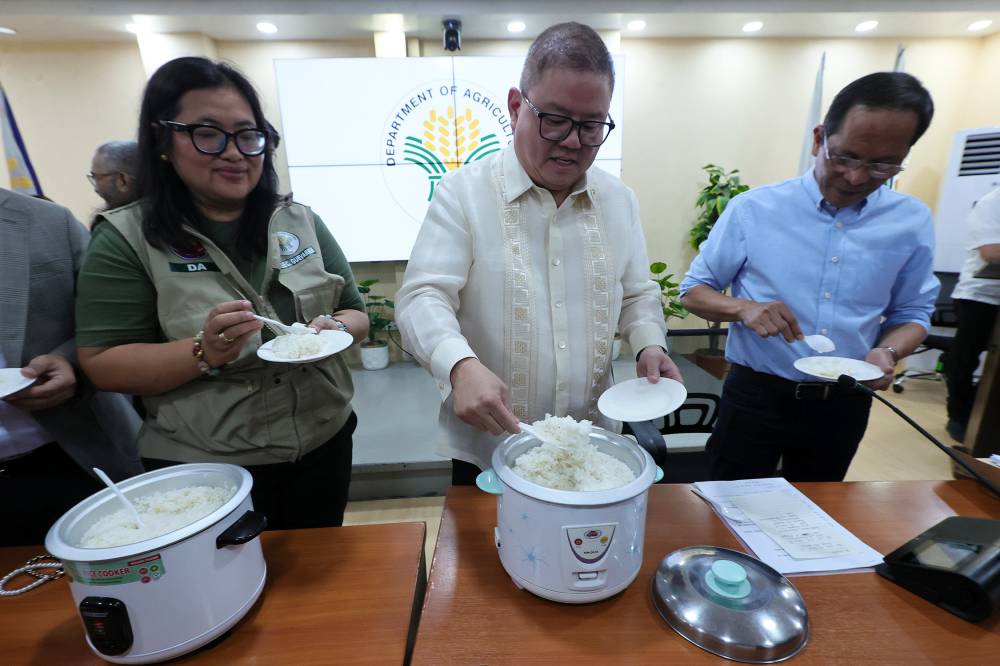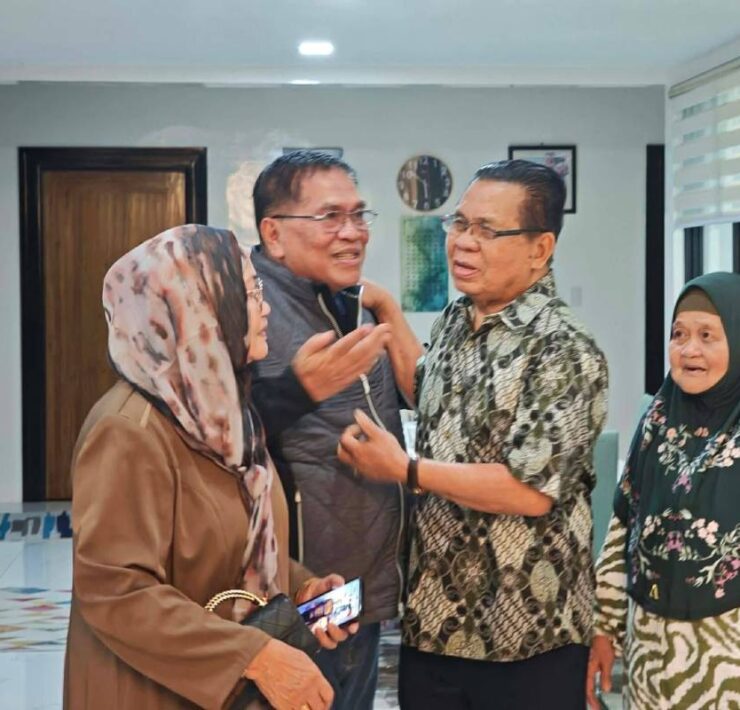Nat’l sale of P20/kg rice still lacking Comelec approval

While the Department of Agriculture (DA) is all set to implement nationwide this week President Marcos’ aspiration of bringing down the retail prices of rice to P20 a kilo, it may have to wait a little longer as it needs the go-ahead from the Commission on Elections (Comelec).
Under Section 261 of the Omnibus Election Code, the release, disbursement or expenditure of public funds is prohibited 45 days before a regular election and 30 days before a special poll, except for the maintenance of public works and emergency work in the event of a public calamity, among others.
Agriculture Secretary Francisco Tiu Laurel Jr. said in a statement last Sunday that he had directed the National Food Authority (NFA) to start transferring rice stocks to the Visayas in preparation for the rollout and that the DA had already secured clearance from the Comelec in the wake of the upcoming national and local elections on May 12.
In a press briefing on Tuesday, however, Tiu Laurel said the agency was still awaiting a decision from the Comelec on whether or not selling rice via Kadiwa centers falls under the election ban.
The DA is planning to launch the P20-a-kilo rice program in the Visayas on May 1 and in Kadiwa centers the following day, but only after securing the Comelec’s approval or clarification.
“If this is really not possible, we will follow the Comelec and start selling only after the election,” he said in Filipino.
Comelec Chair George Garcia confirmed on Tuesday that “the DA still has to secure a clarification from the Comelec… on whether the program can still be implemented during the 10-day period before the election,” but he did not elaborate.
Selling subsidized rice, as well as other forms of ayuda or cash aid distribution, is not allowed from May 2 to May 12 under Comelec Resolution No. 11060, which was promulgated on Sept. 13, 2024, except for medical and burial aid normally given to qualified individuals.
Separate LGU exemptions
Under Memorandum No. 25-07984 dated April 24, the Comelec approved the request of Tiu Laurel to exempt only the P5-billion rice project to be implemented by the DA and the NFA until 2028 from the 45-day ban under the Omnibus Election Code.
The exemption will be applied prospectively and cover only the sale of rice starting on April 25 and those conducted before April 24 would be construed as a violation of the ban and an election offense.
Garcia also added three conditions on top of the Comelec law department recommendations “to promote transparency.”
First, local government units (LGUs) joining the rice project must each request exemption from the commission.
Second, the selling of the low-priced rice will be done in public places.
Lastly, media, civil society organizations and interest groups must be given unrestricted access in the sale of the subsidized rice.
Garcia emphasized that the exemption given to the DA and the NFA does not automatically apply to LGUs.
He said that as the DA will sell the rice to LGUs at P33, the LGUs will subsidize the difference of P13 and should therefore request for exemption.
“There needs to be two exemptions here, for the LGU and the DA. We want to know where the LGU will get their funds [to pay for the subsidized rice]. Because if they don’t have an allocated budget in 2025, where will they get their funds?” Garcia said.
Garcia said that no politicians and candidates and their kin must be present in the selling of the P20-a-kilo rice project and other exempted social programs.
Subsidized price
The implementation of the program was initially set in Central, Western and Eastern Visayas as well as in the Negros Island Region, but the DA subsequently announced that Kadiwa centers and some LGUs will also offer “high quality” rice at P20 a kilo.
While Kadiwa centers will restrict the sale to only indigents, senior citizens, solo parents and persons with disabilities with the purchase limit capped at 30 kilos a month, participating LGUs may offer rice at P20 a kilo to all households in their area.
Under this initiative, the Food Terminal Inc. (FTI) will buy rice from the NFA at P33 a kilo and sell the staple to the LGUs at P20—resulting in a loss of P13.
To make the P20-per-kilo rice possible, P6.50 will be subsidized by the state-owned FTI, while another P6.50 will be shouldered by the Iloilo provincial government.
Tiu Laurel said the government is estimated to incur losses of P10 billion to P12 billion if the NFA’s existing rice stocks bought in 2023 to 2024 are sold at the subsidized price.
The program, according to the agriculture official, aims to benefit 15 million households, accounting for 51 percent of the population classified as below middle class.
Tiu Laurel also assured the public that various safeguards would be in place to ensure its successful implementation and prevent its exploitation.
Local production
In Iloilo, Gov. Arthur Defensor Jr. on Monday signed an executive order paving the way for the sale of well-milled rice at P20 a kilo exclusively to families of the 11,756 undernourished children identified under the province’s Operation Timbang Plus 2024 survey conducted by the National Nutrition Council.
The program has an initial budget of P19 million, or enough to cover the needs of the target beneficiaries until December 2025.
However, Defensor clarified that the rice sales would not start immediately.
“Will we sell next week? No. This is still a developing program. We must first handle procurement, ensure the availability of rice, and operationalize the logistical requirements. This program involves logistics and mobilization. We will be transporting rice and setting up Kadiwa centers,” Defensor explained. —WITH REPORTS FROM RUCHELLE DENICE DEMAISIP AND INQUIRER RESEARCH




















